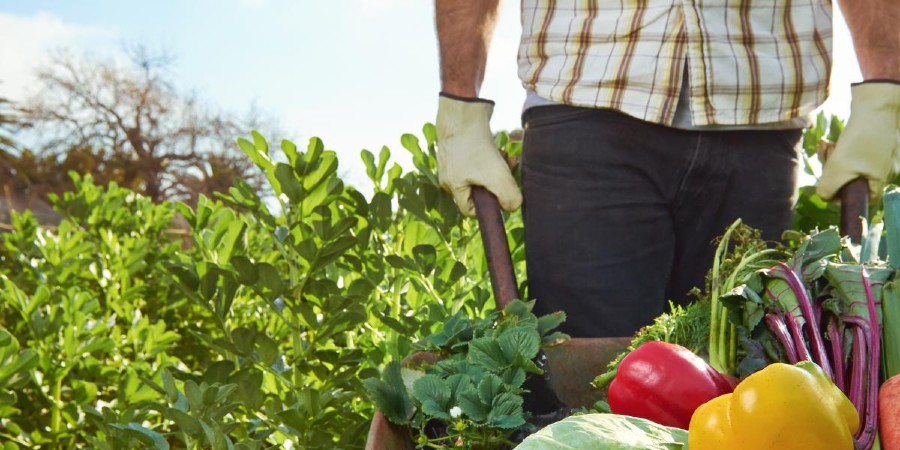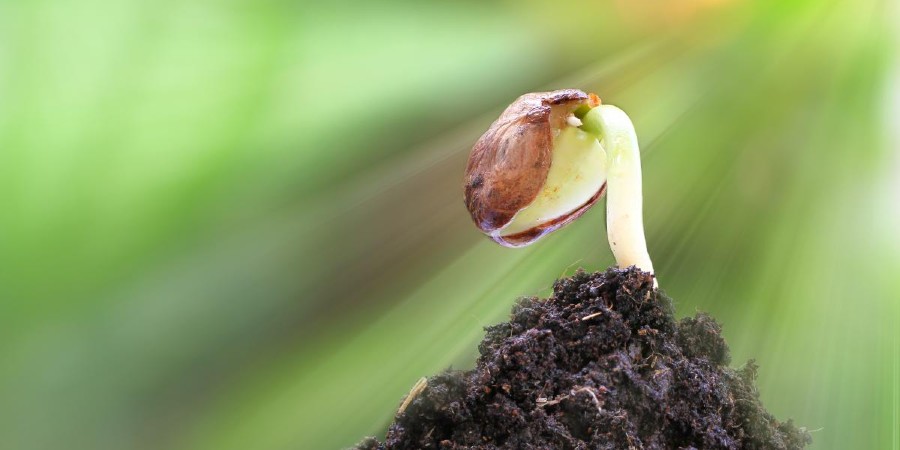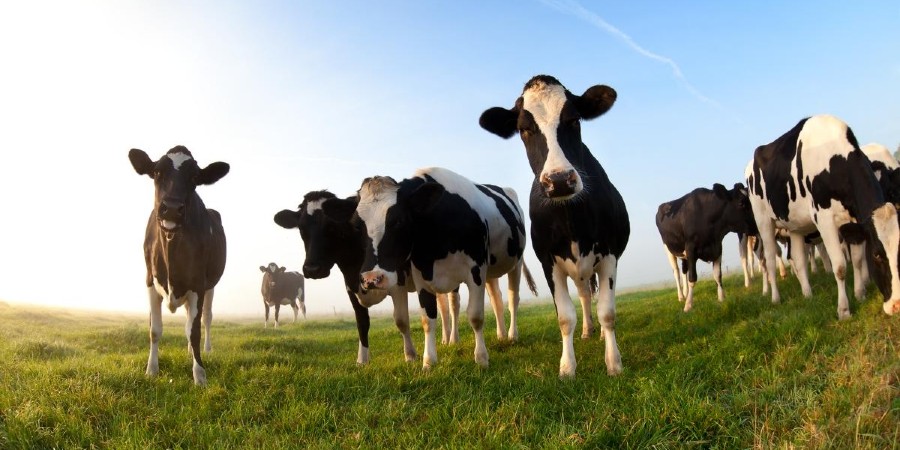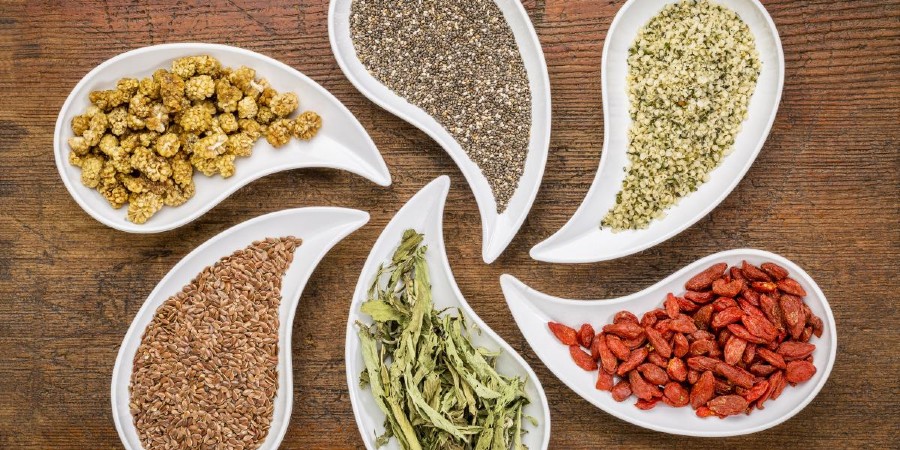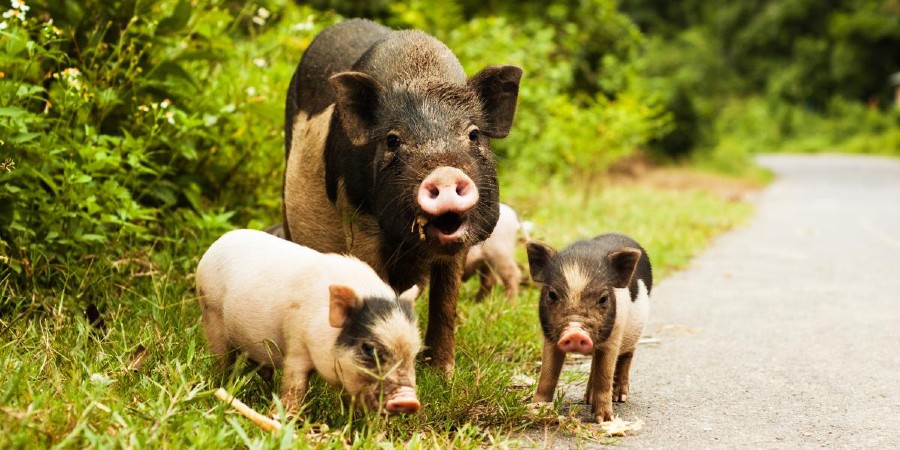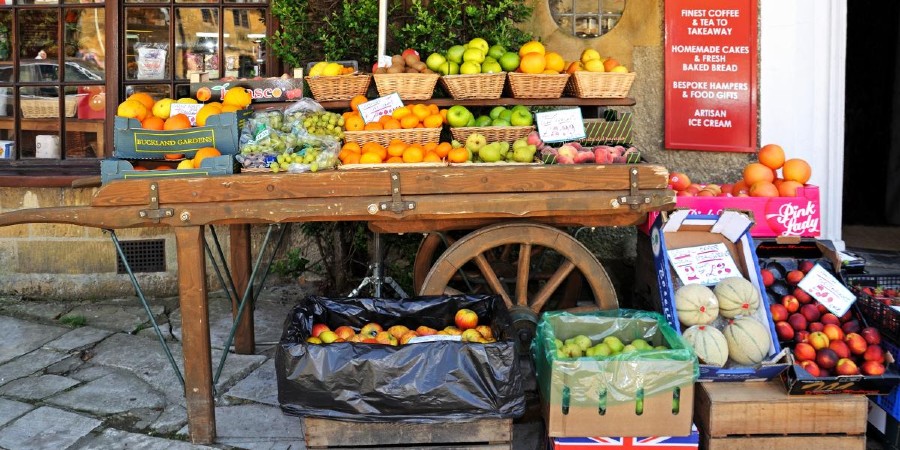The Vegan Society is campaigning for a food system that is fair for everyone: non-human animals, people, and planet.
We are engaging with politicians across the country to outline this vision and are developing detailed plans that help explain the positive impact of a plant-based revolution.
Fix food and farming – start the conversation
Everyone should consider the big issues that impact our food system. We encourage you to join others to begin a conversation around food and farming policy, and consider how plant-based can be part of the solution for tackling the climate emergency.
Take a look at the question cards below and tap or click to reveal The Vegan Society’s views.
SHOULD ALL SECTORS CONTRIBUTE NET ZERO EMISSIONS BY 2050?
Is it reasonable to expect our farmers to make the same ambitious cuts we expect of the transport and fossil fuel sectors?
Can we risk hoping that one or two sectors will make drastic changes so that agriculture can continue business as usual?
CAN ANIMAL FARMING BE CARBON NEUTRAL?
Are there ways of rearing animals to feed the nation without greenhouse gas emissions?
Should we rely on non-existent future technologies or do we need to rethink the role of animals in our food system?
SHOULD THE NEW AGRICULTURE BILL PRIORITISE PLANT-BASED FOOD PRODUCTION?
Should government policy acknowledge the benefits of plant-based farming?
What sort of policies might support a transition to plant-based farming?
SHOULD THE GOVERNMENT OFFER SUPPORT TO ANIMAL FARMERS WHO WANT TO TRANSITION TO PLANT-BASED FARMING?
How should farmers who are ready, willing and able to move out of animal farming into more sustainable plant-based farming be supported?
DOES THE GOVERNMENT HAVE A RESPONSIBILITY TO IMPROVE PUBLIC HEALTH?
How should the government respond to the public health crisis caused by poor diets?
Should we intervene in the same way as we do with other damaging products like cigarettes and alcohol, or should we incentivise healthier food choices?
SHOULD WE EAT LESS MEAT, DAIRY AND EGGS?
Do we really need to change what we eat?
Would other behaviour changes have more impact?
What do you think?
Do you agree with our calls for action?
- Ensure that the agriculture sector steps up with a realistic plan for carbon reduction.
- Provide a package of support to encourage farmers to transition to plant-based, to include: higher subsidies; access to capital investment; training; advice; research & development funding.
- Subsidise fruit and vegetables to encourage healthy food choices.
If so, can you contact your elected representatives to get them on board?
A recent report produced by the Intergovernmental Panel on Climate Change (IPCC) states that global temperatures are rising far more quickly than anticipated. We no longer have the time to target specific sectors, as is currently the case, and must encourage all sectors to take drastic action if we are to achieve net zero by 2050.
Agriculture emits 10% of UK greenhouse gases but changing the UK’s farming system has been neglected within the policy discourse so far. The agricultural sector must ensure that it fulfills its responsibilities in reducing emissions, so that the burden does not fall unrealistically on other sectors.
We must adopt the precautionary principle and do all we can to protect the planet, and all those who live on it, from harm.
There is no currently available technology that can mitigate the inherent problems of farming ruminant animals (cows and sheep). A major overhaul of the farming system is required in order to effectively tackle the climate crisis.
Claims that grass-fed animal farming is a sustainable method of production are not backed up by evidence. Research indicates that carbon sequestered by raising cattle exclusively on pasture – even if sustainably managed – doesn’t balance out the methane released over a cow’s lifecycle.
A report published by the Food Climate Research Network concludes that the sequestration potential of grass-fed farming systems is minimal on both a regional and global scale. Grass-fed beef also requires several years of foraging to reach similar weights to conventional, grain-fed beef and takes up 35% more water and 30% more land, negating the argument that livestock farming can be made carbon neutral.
The intensive farming of pork and poultry may result in lower emissions, but it’s carbon footprint is still very high as demand for animal feed drives deforestation, and the public don’t want to see cruelty increase in the food system. The easiest, and kindest, method of ensuring that we reach emissions targets is to encourage a transition to plant-based farming, where crops are grown directly for human consumption - making the food chain shorter, more efficient, and more sustainable.
The exit of the UK from the EU (and thus the Common Agricultural Policy) presents an opportunity to radically overhaul agriculture. Evidence suggests that plant-based farming is not only a sustainable form of production but also has significantly better environmental outcomes than animal farming.
It is therefore important for government policy to reflect this. Whereas in most sectors, the bulk of income is constituted by sales of goods and services, for the farming sector over half of total farming income comes from subsidies. The ‘public money for public goods’ approach should recognise the environmental benefit of growing crops for human consumption, particularly protein crops (peas, beans and other legumes).
Other policies could include funds for capital expenditure, support for research and development, training and advisory services.
The market for plant-based food is growing exponentially and we know that transitioning to diets free of animal products can deliver more environmental benefits than changes to production practices in animal farming.
Farmers willing to make the shift to plant-based (or other more planet friendly land uses) need support and incentives. Subsidies – an important revenue source for UK farms – are not currently directed alternatives to incentivise farmers to switch to plant-based production.
There is a lack of knowledge, (from both producers and consumers) about the potential benefits of protein crops such as pulses. Agricultural research and development tends to follow existing forms of production, as market power and political representation is concentrated around large, existing producers and this needs to change.
The Vegan Society’s Grow Green campaign is therefore calling for a package of support for the growing number of animal farmers who want to switch to growing crops, as well as designated funding for crop research and development.
In the UK, poor diet has an estimated cost of £6 billion a year on NHS budgets, due to preventable ill-health. This is more than alcohol, smoking or lack of physical activity. Evidence indicates that this can be addressed through the promotion of healthier, plant-based foods.
It is therefore crucial to address the social and economic inequalities that lead to poor consumption behaviours, and to acknowledge that poor diets are predominantly a result of the fact that many are unable to afford nutritious and sustainable food. Whilst healthy food as a guaranteed universal right should be aspired towards, we must address existing health and social inequalities in order to make this possible.
A fruit and vegetable subsidy of just 10% could enable citizens to make healthier choices and would be a long-term investment in treating health inequalities by encouraging people to try things they otherwise would not have purchased due to price.
Avoiding meat and dairy products is the single biggest way to reduce your environmental impact, according to the scientists behind the most comprehensive analysis of the damage farming does to the planet. Reports produced by the IPCC and Committee for Climate Change (CCC) indicate that diets should be predominantly plant-based – high in pulses and grains – for the benefit of planetary and personal health.
Plant-based diets use 50% less water than typical British diets, putting less pressure on increasingly scarce water resources. Due to inefficiencies inherent in eating animals (on average only 12% of the calories fed to livestock are retained in animal products), a switch to a plant-based system would enable us to feed an extra 3 billion people globally.
With a rapidly growing global population, diets will need to change to ensure that everyone has food to eat. For most of us in developed nations, this must include a radical reduction in the consumption of animal products.
7
8

